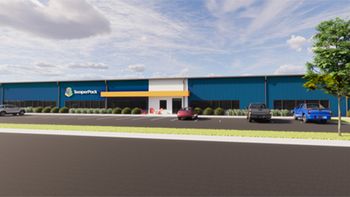
- Pharmaceutical Commerce - March/April 2017
Express Scripts Drug Trend report: spending increase held to 3.8% in 2016
'Rebates do not raise drug prices, drug makers do,' says the PBM
Between its annually published Drug Trends report, and the press release announcing it, Express Scripts makes a strident case for employers and other health plans to use its techniques to constrain drug costs. Overall, the company says its health-plan customers saw a cost increase of only 3.8% in calendar year 2016, and unit costs increased even less (2.5%). (The difference between the two is mostly from whatever change has occurred in prescription usage by covered patients.) Express Scripts compares these percentages to generally higher measures of price inflation, of either brand drugs or prescription drugs overall; for example, its Price Inflation Index, which measures list-price increases, was up 11% for branded drugs in 2016. (Generics, which are by far the greater portion of drug dispensing, saw their list price drop in the same index by 8.7%.)
Part of the stridency might be coming from PBMs like Express Scripts being blamed for the higher margins between pharma manufacturers’ net revenue and the list prices of their drugs (with PBMs soaking up a portion of that margin in their own profits); but another part is that Express Scripts’ techniques are successful: when some higher-cost but equivalent-therapy drugs are on exclusion lists, and when healthcare providers (HCPs) are constrained by which drugs they and prescribe to their patients, a counterpressure is exerted on drug costs. Express Scripts’ biggest effort, arguably, is in winning those rebates from manufacturers, who are competing to get on formulary, or have a preferential formulary position.
“Rebates do not raise drug prices, drug makers do,” said Dr. Glen Stettin, MD, Chief Innovation Officer, who uses some circular logic to assert that “As demonstrated by lower overall and unit cost trend in 2016, Express Scripts is effective in protecting employers from the effects of inflation by using our focused size and scale to secure significant rebates, which are returned to employers to reduce the overall cost of their pharmacy benefit.”
Express Scripts also touts its success in specialty pharmaceutical cost control; the cost increase experienced in here in 2016 was 13.3%, “the lowest trend reported since [Express Scripts] first included specialty medications in our annual analysis in 2003,” but significantly, specialty drugs accounted for more than a third of total spending in 2016. The company established what it calls the SafeGuardRx program, which puts specific requirements on drug dispensing for a variety of therapeutic classes, that help control specialty costs.
Under its National Preferred Formulary plan, Express Scripts excludes some 80 drugs from formulary, based on the availability of alternative choices, or for questions on the therapeutic value of the drug; this program saved Express Scripts clients $1.3 billion in 2016, and is projected to save $1.8 billion in 2017.
Finally, the company says that it has eliminated 95% of spending for “unnecessary and potentially unsafe” use of compounded medications; over the past two years this saved $2 billion. The full report is accessible
Articles in this issue
over 8 years ago
GS1 standards are vital for pharma serializationover 8 years ago
The ‘site-less’ clinical trial process moves aheadover 8 years ago
The growing role of clinical trial educatorsover 8 years ago
Thermal blankets find a growing cold chain roleover 8 years ago
2017 Hub Services reportover 8 years ago
Pharma ups the ante on DTC advertisingover 8 years ago
Serialization status in ‘Year Zero’Newsletter
Stay ahead in the life sciences industry with Pharmaceutical Commerce, the latest news, trends, and strategies in drug distribution, commercialization, and market access.




